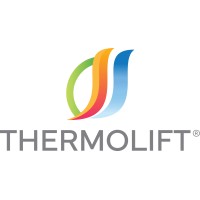
ThermoLift, Inc.
We provide environmentally responsible heating and cooling solutions for homeowners and businesses. When you want to save money and the planet – Look to ThermoLift’s environmentally responsible comfort solutions. ThermoLift’s technology advantage lies in the Helium used our system. Helium is used in place of toxic refrigerants found in most heating and cooling systems on the market today. So we can deliver -0- Global Warming Potential, -0- Ozone Depletion Potential, -0- Toxicity and -0- Flammability while delivering highly efficient heating, cooling and hot water.






